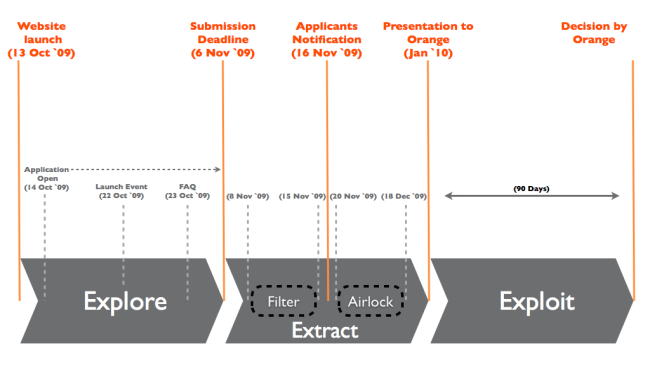...and then it dawned on me: because Google sets out to hire those people who are likely to set up interesting companies when they move on.
The point is not that Google somehow creates people who do cool stuff. It's the other way around. People who do cool stuff want to work at Google because it has a reputation for letting people do cool stuff. Meanwhile, Google is looking for these cool-stuffers, precisely because they can and want to cool-stuff.
When these cool-stuffers get up and leave Google, they go off and cool-stuff with some other ex-Googlers. Is Google unhappy about it? Of course not! Everyone looks at ex-Googlers and says "wow!" The reputation of the ex-Googlers is part of the Google recruitment toolkit.
[Hint: there's a lesson in there for start-ups]
So what is nextstop?
According to the blurb...
nextstop is a community of people who love to discover the world around them. We enable members to exchange short, positive recommendations for the places and experiences they love most, and through this collective effort, are building a rich repository of information about the best things to do that spans the globe.
Sounds like a ton of other companies out there like Qype, Yell, trustedplaces, Trip Advisor and all their pre-cursors like Lonely Planet, Fodor's or Bradt Guide. But it's a little different: "we're a place to discover new things to get out and do wherever you are".
The approach is different because it works a bit like a search engine. The homepage has a Bing-like feel to it. You type in the place you want for recommendations and whoomf! you're carried across to a whole bunch of recommendations relating to it, in thematic categories, with keyword filters etc.
Is there space in the crowded market for a new take on an old (very old) concept? Perhaps not. I know from talking to the founder of one of the companies I mentioned above that revenue is very hard to come by. Nothing wrong in itself with entering a market where there's proven demand.


